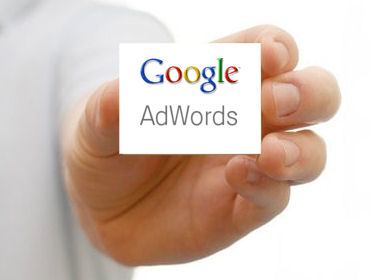
Perhaps the chief concern for event planners everywhere is to match the style of their speaker to the audience demographics. You can hire the most engaging, dynamic speaker with a fabulous reputation, but if the audience cannot relate to that speaker, your event will fail to reach its full potential.
Beyond even concerns of budget or availability, speaker style is the most critical measure of whether the speaker you choose will succeed with your audience. Use these considerations to evaluate each speaker you are considering and decide which is the best fit for your group.
Star Power
Some audiences are more impressed by "star power" - a speaker's credentials or public status - than other audiences. As well, certain topics can be better addressed by a speaker who has publicly "earned the right" to make statements that may challenge long-standing practices or beliefs the audience may hold dear. There is a right time and place to exert the influence of celebrity leadership speakers to impact your attendees. By taking a pulse on your prospective audience, you can get a feel for whether now is the right time to harness star power to get your message across.
Budget
If budget is not a concern for your event, you have more options to select a mix of famous and local speakers. If budget is a concern, however, you may want to select just one topic or session where you feature a top-shelf speaker who has a public reputation. Of equal importance here is to evaluate whether your audience reaction will change based on the credentials of your speaker. For some topics - for instance, in charitable fundraising events - hearing from actual volunteers or beneficiaries can turn on the waterworks (and open the wallets) in a way that even the oratory of famous speakers cannot. For other topics - for instance, finance or tax matters - credentials will matter greatly in terms of how receptive the audience is to the information presented.
In-House Expert Impact
For some events, you may need to hire a speaker who specializes in addressing the audience you hope to attract. This may mean selecting a speaker who has in-house expertise, even if this person is unknown beyond the boundaries of your industry. You want a speaker who knows when to place emphasis, when to pause and ask for questions, when to introduce difficult matters and how to speak using the lingo of the listeners. For this, you need an industry insider.
Ability to Relate to Audience
The most important element here extends beyond the content of a speaker's presentation to how he or she presents in front of an audience. Dress, hairstyle, gender, age, cultural background, life experience and more can play into whether the audience instantly feels connected to your speaker or not. For instance, speakers who typically address younger audiences may style their hair and adopt a dress code that their audiences can relate to easily. For a talk about parenting, you will want to be sure you select a speaker who is a parent. In the business world, having a speaker who appears distinguished and dresses formally can be an asset with certain topics.
Speaker Style
Speaker style refers to whether the speaker uses more formal methods of address or has a more casual, informal style. It is possible for skilled speakers to use very formal presentation methods and still be funny and approachable, or for extremely down-to-earth, casual speakers to make hard-hitting points. The key is to select the right mix of these attributes to deeply impact your attendees.
Topic
The topics your speaker typically speaks on will tell you how familiar and comfortable he or she is in certain areas and with certain types of audiences. While it is possible to select a speaker you like and assign them a topic, if they don't have prior experience with the subject, the speech won't be as good as it could have been with an expert. Rather than choosing someone for popularity alone, make sure you take into consideration that a speaker's intent is to inform.
When you carefully consider each of these elements before selecting your speaker, you can be sure you will deliver a program that your attendees will appreciate and reflect upon for future years.
About The Author: Carolyn Chance spent several years as a traveling motivational speaker before moving in-house to manage conferences for a Fortune 500 company. Now she is in charge of finding speaking talent for the company.
Did you like this article? Please let me know by leaving me your valued comments in the comments section below.
If you found this or any of my other posts helpful, don't forget to share the posts to your favourite networks using the toolbar below or by using the "+1" and "Share" buttons located at the bottom of each post.
As ever, if you want to stay up to date with the latest blog posts, don't forget to follow via Google Friend Connect (button on sidebar), on NetworkedBlogs, via Email (maximum of one email per day), on Facebook and Google+ or by subscribing to our blog feed at:
http://feeds.feedburner.com/DereksHomeAndBusinessBlog
You can also follow me on Twitter @djones1509, Google+ and on Facebook at:
http://www.facebook.com/djones1509
https://plus.google.com/104849975941505117776
Until my next post on Monday on proven ways to drive traffic to your blog, have a wonderful and relaxing weekend!
© 2013. This article is DMCA protected. Republication is prohibited.
Beyond even concerns of budget or availability, speaker style is the most critical measure of whether the speaker you choose will succeed with your audience. Use these considerations to evaluate each speaker you are considering and decide which is the best fit for your group.
Star Power
Some audiences are more impressed by "star power" - a speaker's credentials or public status - than other audiences. As well, certain topics can be better addressed by a speaker who has publicly "earned the right" to make statements that may challenge long-standing practices or beliefs the audience may hold dear. There is a right time and place to exert the influence of celebrity leadership speakers to impact your attendees. By taking a pulse on your prospective audience, you can get a feel for whether now is the right time to harness star power to get your message across.
Budget
If budget is not a concern for your event, you have more options to select a mix of famous and local speakers. If budget is a concern, however, you may want to select just one topic or session where you feature a top-shelf speaker who has a public reputation. Of equal importance here is to evaluate whether your audience reaction will change based on the credentials of your speaker. For some topics - for instance, in charitable fundraising events - hearing from actual volunteers or beneficiaries can turn on the waterworks (and open the wallets) in a way that even the oratory of famous speakers cannot. For other topics - for instance, finance or tax matters - credentials will matter greatly in terms of how receptive the audience is to the information presented.
In-House Expert Impact
For some events, you may need to hire a speaker who specializes in addressing the audience you hope to attract. This may mean selecting a speaker who has in-house expertise, even if this person is unknown beyond the boundaries of your industry. You want a speaker who knows when to place emphasis, when to pause and ask for questions, when to introduce difficult matters and how to speak using the lingo of the listeners. For this, you need an industry insider.
Ability to Relate to Audience
The most important element here extends beyond the content of a speaker's presentation to how he or she presents in front of an audience. Dress, hairstyle, gender, age, cultural background, life experience and more can play into whether the audience instantly feels connected to your speaker or not. For instance, speakers who typically address younger audiences may style their hair and adopt a dress code that their audiences can relate to easily. For a talk about parenting, you will want to be sure you select a speaker who is a parent. In the business world, having a speaker who appears distinguished and dresses formally can be an asset with certain topics.
Speaker Style
Speaker style refers to whether the speaker uses more formal methods of address or has a more casual, informal style. It is possible for skilled speakers to use very formal presentation methods and still be funny and approachable, or for extremely down-to-earth, casual speakers to make hard-hitting points. The key is to select the right mix of these attributes to deeply impact your attendees.
Topic
The topics your speaker typically speaks on will tell you how familiar and comfortable he or she is in certain areas and with certain types of audiences. While it is possible to select a speaker you like and assign them a topic, if they don't have prior experience with the subject, the speech won't be as good as it could have been with an expert. Rather than choosing someone for popularity alone, make sure you take into consideration that a speaker's intent is to inform.
When you carefully consider each of these elements before selecting your speaker, you can be sure you will deliver a program that your attendees will appreciate and reflect upon for future years.
About The Author: Carolyn Chance spent several years as a traveling motivational speaker before moving in-house to manage conferences for a Fortune 500 company. Now she is in charge of finding speaking talent for the company.
Did you like this article? Please let me know by leaving me your valued comments in the comments section below.
If you found this or any of my other posts helpful, don't forget to share the posts to your favourite networks using the toolbar below or by using the "+1" and "Share" buttons located at the bottom of each post.
As ever, if you want to stay up to date with the latest blog posts, don't forget to follow via Google Friend Connect (button on sidebar), on NetworkedBlogs, via Email (maximum of one email per day), on Facebook and Google+ or by subscribing to our blog feed at:
http://feeds.feedburner.com/DereksHomeAndBusinessBlog
You can also follow me on Twitter @djones1509, Google+ and on Facebook at:
http://www.facebook.com/djones1509
https://plus.google.com/104849975941505117776
Until my next post on Monday on proven ways to drive traffic to your blog, have a wonderful and relaxing weekend!
© 2013. This article is DMCA protected. Republication is prohibited.


